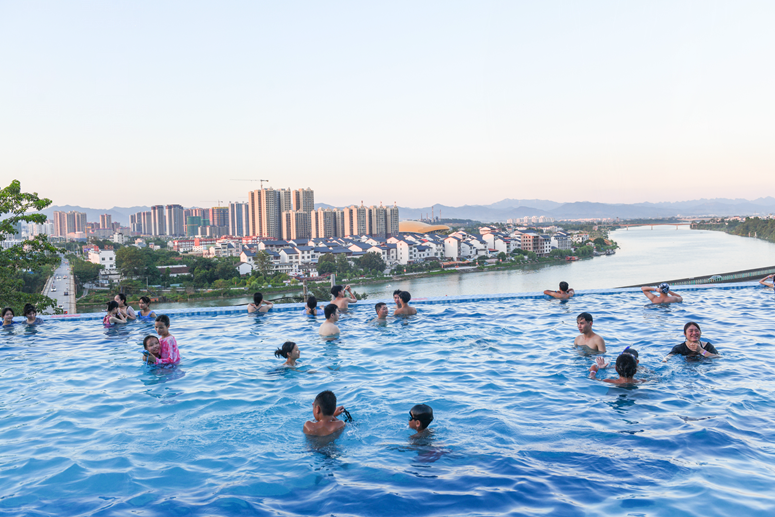How to Deal with the Water in Water Parks?
Although the water park has developed in a strong trend, the maintenance cost is such a heavy burden for operators of water parks. In the water park, the fun is mainly brought by playing with water, so the safety of the water is vital for tourists. Correspondingly, the improvement and maintenance of the water quality are the keys to the operation of a water park.
How to keep the water in water parks safe? Here are some tips for your reference.
Filtration
In the water supply system of water parks, filtration is an essential part. Generally, filters are configured in swimming pools, wave pools, and slide pools to clean up debris in the pool. Filters are contained stainless steel filter tanks, sand tanks, circulating water pumps, and hair collector. Circulating water pumps can capture the hair and large suspended solids in the pool to clean the water.
Disinfection and Sterilization
There are two methods of disinfection used in the water park, namely chlorine disinfection and ozone disinfection. Chlorine disinfection is to put the liquid sodium hypochlorite or solid chlorine tablet into the pool and wait for a period to achieve the disinfection effect. It is usually used in large swimming venues and areas with excellent economic conditions.
In terms of water quality, the more advanced water park will continuously test the water quality data through the water treatment system and display them in the operation room.
The water treatment system will automatically measure the water flow, PH value, and residual chlorine concentration, and automatically add flocculant and other disinfectants according to the set concentration proportion for disinfection and sterilization. Besides, in case of any abnormality of various parameters of water quality due to insufficient chemicals, the system will give an alarm to inform relevant staff for handling.
Stabilize the PH Value of the Water
PH is an essential index to feedback the quality of water in the water park, and the range of pH value in the Water Quality Standard of Artificial Swimming Pool is 6.5-8.5. To keep the water in a healthy state, the managers of the water park should pay close attention to whether this indicator is up to the standard.
The PH value of the water can be measured by simple test paper, and a unique stabilizer can be added to keep the pH value of water in a reasonable range.
Prevent Algae Flooding
Algae are mainly brought into the water by the spores in the air, the scour of lawn, and soil. Many kinds of algae can breed rapidly in the water. It is not a positive phenomenon for algae to flood in the water pool for that they will consume carbon dioxide dissolved in the water, resulting in a rapid rise of PH.
As the dead algae consume oxygen in the water, they will make the clear pool water turbid. This often happens after a rainstorm, especially when the water temperature is high.
Generally, when there is enough residual chlorine in the water, algal propagation can be effectively inhibited. It would help effectively control the propagation of bacteria and algae in the water, and avoid various problems caused by algae in the swimming pool and wave pool if regularly employ the special algaecide that can kill bacteria and algae.
Only the water in water parks is appropriately treated, can bring a steady stream of profits for the water park. If you have any other questions about the water park, including equipment purchase and maintenance, Lanchao will be happy to answer you. Lanchao is not only a professional manufacturer of water park equipment, such as water slides but also unique in the master planning of the water park.

